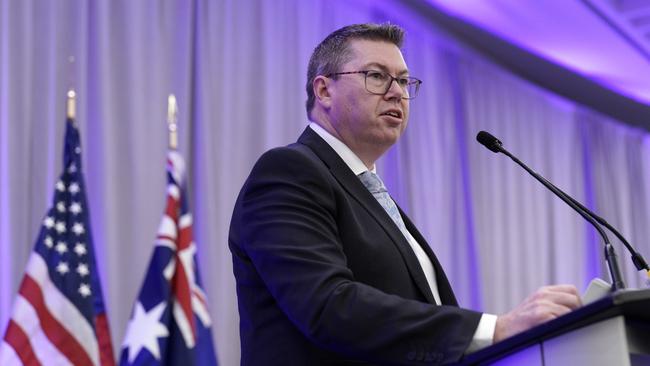Australia pushes for Pacific islands climate finance
Australia agitated for the controversial issue of loss and damage to be added to the COP27 agenda, as a gesture of solidarity for Pacific countries.

Australia agitated for the controversial issue of loss and damage to be added at the last minute to the agenda of the COP27 conference in Sharm el-Sheikh, as a gesture of solidarity for Pacific countries.
Australia’s Minister for International Development and the Pacific, Pat Conroy, who is in Egypt, said Australia wanted to rebuild relationships with the Pacific after ten years of inaction and vowed to “drive momentum” on providing adaptation finance, as raised in the Glasgow Treaty last year.
Some developing countries have resisted the issue of loss and damage, fearing that paying reparations to less developed nations would open the door to unlimited costs.
A report by Carbon Briefing released on Monday, said that Australia had only paid a third of its financing commitments made at a 2009 COP, where OECD developed nations would contribute US$100bn by 2020 But Australia’s contributions were US$1.7bn short up to the latest accounts the report said.
Activists have suggested western countries, particularly the United Kingdom which was the first industrialised country, should pay reparations of a “trillion million dollars”.
In the opening speeches of COP27 the issue of paying damages to less developed countries was a hot topic.
French president Emmanuel Macron called for energy sobriety and that “we must come to terms with the idea of financial solidarity” by having wealthier countries contributing to those countries facing climate emergencies. He insisted that the Ukraine war would not stop French progress on its climate targets.
Mr Conroy said the Albanese government recognised that “loss and damage”payments were of significant interest to the Pacific.
He said: “We will fight for the right for the Pacific to be represented and for the Pacific voice to be heard. And if you’re looking for demonstration of that in real life, we had a very strong intervention from Australian negotiators to fight for loss and damage to be included in the agenda for this COP, because we recognise that it’s of significant interest to the Pacific and this is in stark contrast to previous actions of previous Australian governments.”
Mr Conroy’s first meeting at the COP27 on Monday was with Henry Puna, the secretary-general of the Pacific Islands Forum.
Mr Conroy said: “What we intend on doing through the COP is driving momentum on implementation of the Glasgow Treaty. Importantly, that includes adaptation. It also includes climate financing, including loss and damage, looking at progressing that where it’s appropriate. And thirdly, making sure that there is a laser-like focus on climate mitigation. We cannot lose sight of the 1.5 degree objective. And Australia is very focused on adding our voice to make sure that there is no backsliding and that in all these discussions, 1.5 must stay alive.”
United Nations Secretary General António Guterres has called on developed nations like Australia to phase out coal and other fossil fuels in the next seven years.
Mr Guterres said in his keynote address at COP27 that all countries had to make a pact for extra efforts to reduce emissions this decade, warning that “we co-operate or perish”. In a direct message to the biggest carbon emitters, China and the United States, Mr Guterres said not joining such an international pact would be “a collective suicide pact”.
Mr Guterres said: “1.5C degree goal is on life support – and the machines are rattling. We are getting dangerously close to the point of no return”.
Under Mr Guterres’s plan, developed nations such as Australia should end fossil fuel mining by 2030, with less developed nations given a deadline of 2040.
He also said that the issue of loss and damage to less developed countries “ can no longer be swept under the rug. It is a moral imperative. It is a fundamental question of international solidarity — and climate justice.
“Those who contributed least to the climate crisis are reaping the whirlwind sown by others.”
British prime minster Rishi Sunak gave a less than inspiring speech saying he believed in climate action and that “I profoundly believe it is the right thing to do”.
The ex-British prime minister Boris Johnson, who is attending the conference said that while Britain “started it all” with “the first wisps of carbon came out of the factories and mills and foundries of the West Midlands 200 years ago”, the country cannot afford reparations to other countries.
“There’s no question that per capita the people of the UK have put a lot of carbon into the atmosphere,’’ he said.
“What we cannot do is make up for that in some kind of reparations. We simply do not have the financial resources. No country could. What we can do is help with the technology that can help to fix the problem.”




To join the conversation, please log in. Don't have an account? Register
Join the conversation, you are commenting as Logout